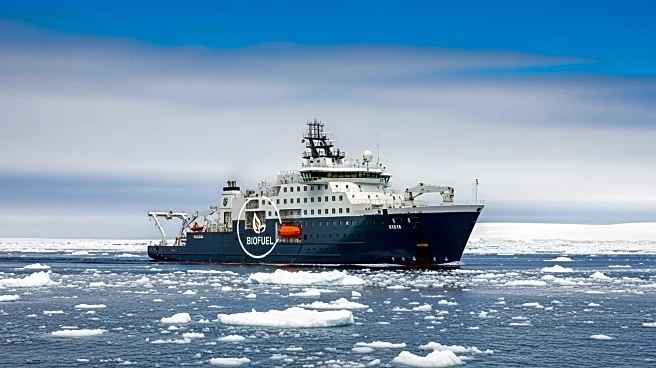What's Happening?
The British Antarctic Survey's polar research vessel, RRS Sir David Attenborough, has set sail for Antarctica using hydrotreated vegetable oil (HVO) as fuel. This initiative is part of BAS's efforts to
decarbonize marine operations, with the vessel embarking on a five-week voyage to support extensive research expeditions. The use of HVO is expected to significantly reduce carbon emissions, aligning with BAS's goal to achieve net zero by 2040. The research team will conduct over 60 science projects, focusing on climate, ocean, and ecological studies.
Why It's Important?
The deployment of the RRS Sir David Attenborough using biofuel represents a significant step towards sustainable scientific exploration. By reducing carbon emissions, BAS is contributing to global efforts to combat climate change. The research conducted during this mission will provide valuable insights into the Antarctic environment, informing policies and strategies to address climate-related challenges. The initiative also sets a precedent for other research organizations to adopt sustainable practices in their operations.
What's Next?
The research vessel will continue its mission in Antarctica, with scientists expected to deliver findings that could influence climate policy and conservation efforts. The success of using HVO may encourage BAS and other organizations to expand the use of biofuels in future missions. The data collected during this expedition will be crucial in understanding the impacts of climate change on the Antarctic region.
Beyond the Headlines
The use of biofuel in polar research highlights the intersection of scientific exploration and environmental sustainability. This approach not only reduces the carbon footprint of research activities but also demonstrates the feasibility of integrating green technologies in challenging environments. The mission underscores the importance of innovation in addressing global environmental issues, potentially inspiring other sectors to adopt similar practices.









